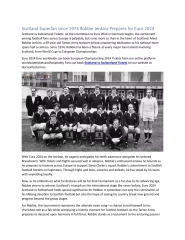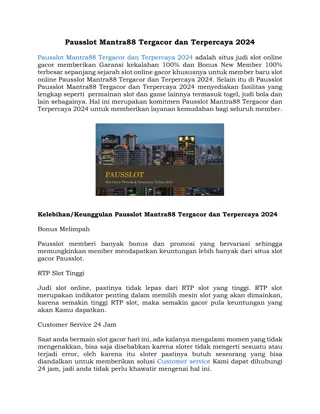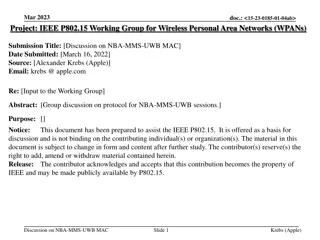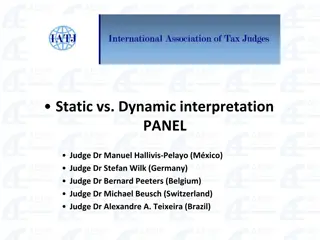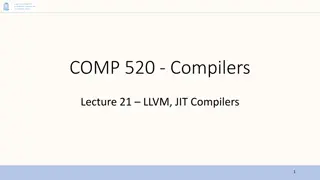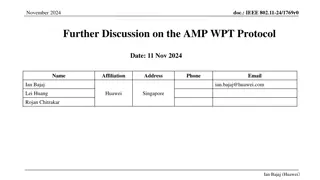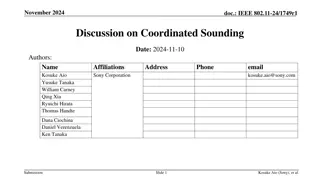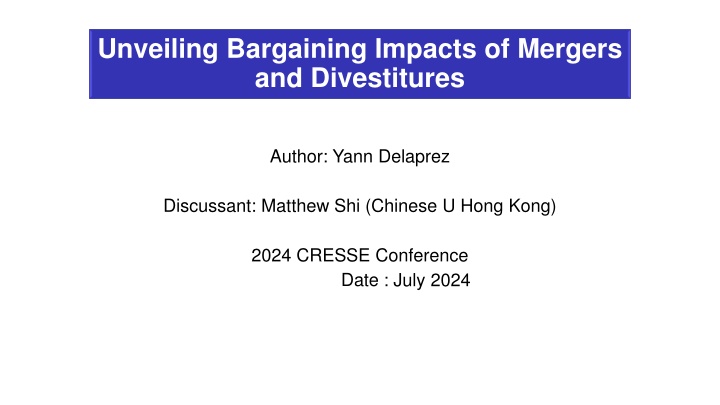
Bargaining Impacts of Mergers and Divestitures
Explore the methodology and key insights of a study on the bargaining power dynamics in merger and divestiture scenarios, impacting vertical relationships and market outcomes. Analysis of a US deodorant market merger case challenges traditional approaches, shedding light on the importance of considering changes in bargaining power.
Download Presentation

Please find below an Image/Link to download the presentation.
The content on the website is provided AS IS for your information and personal use only. It may not be sold, licensed, or shared on other websites without obtaining consent from the author. If you encounter any issues during the download, it is possible that the publisher has removed the file from their server.
You are allowed to download the files provided on this website for personal or commercial use, subject to the condition that they are used lawfully. All files are the property of their respective owners.
The content on the website is provided AS IS for your information and personal use only. It may not be sold, licensed, or shared on other websites without obtaining consent from the author.
E N D
Presentation Transcript
Unveiling Bargaining Impacts of Mergers and Divestitures Author: Yann Delaprez Discussant: Matthew Shi (Chinese U Hong Kong) 2024 CRESSE Conference Date : July 2024
Key Insights Bargaining is crucial for understanding merger and divestiture policies in vertical relationships, but is often underestimated The paper develops a powerful structural method to estimate/recover bounds on upstream/downstream bargaining power at a highly detailed level (product-market level) The new method is applied to analyze an important merger case (with divestiture) in the US deodorant markets, challenging traditional approaches that do not account for changes in bargaining power. 4/13/2025 2024 CRESSE Conference 2
Comment I This is an ambitious project with a major methodological contribution. In my opinion, the key equation What additional information/variation in data is brought to recover bargaining weights? => disagreement payoffs ( threats ), which depend on (hypothetical) market share differences (i.e, if a product is not carried by a retailer) More discussion on intuitions will be helpful. 4/13/2025 2024 CRESSE Conference 3
Comment II Disagreement payoffs are imputed, so highly dependent on empirical estimates. Constant MC s assumed: could it be relaxed? Alternative IV choice: Hausman-Nevo type IV (same product price in other geo. markets) Alternative functional form: Logit w/ random-coefficients Other robustness checks could further boost credibility of the demand & cost estimates (=> disagreement payoffs => bargaining weights) 4/13/2025 2024 CRESSE Conference 4
Comment III Reduced-form results suggest distinct post-merger price effects for three brands owned by the same firm Why? Explanation: bargaining weights changed After recovering bargaining weights, it is assumed the bargaining ability (which determines weights) is a function of a set of merger/divestiture indicators (+ fixed effects) Future direction: why did the same firm end up have different bargaining ability changes for its products? Could weights be linked to other observable factors (e.g. retailer characteristics)? 4/13/2025 2024 CRESSE Conference 5









